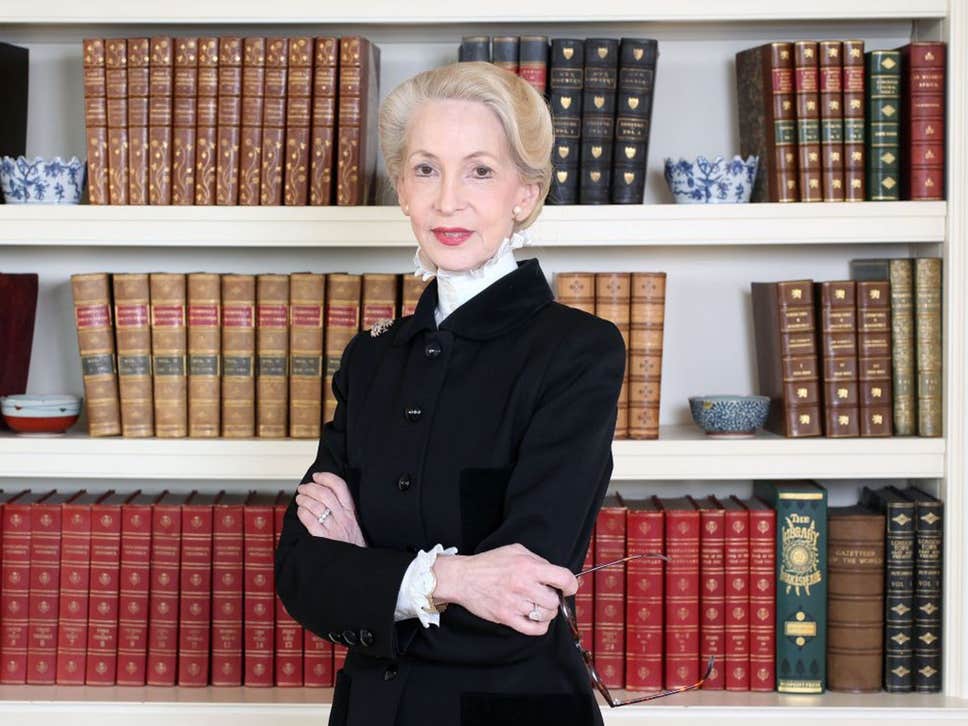
Midway through her interview with People Management, Lady Barbara Judge CBE produces two phones. One is a standard smartphone, which she uses for internet access and interactivity. The other is a Nokia so obsolete she confesses it is almost impossible to buy a replacement.
The dual handsets, she says, “reflect my personality”. But they also are testament, perhaps, to just how complex her working life is. One of the UK’s pre-eminent businesswomen, she has held a remarkable array of directorships and roles, having first made her name as a corporate lawyer and later as a member of the Securities and Exchange Commission in the US.
In London, she spent two decades working in private equity and took up the crucial role as chair of the Pension Protection Fund. Today, she chairs anti-fraud body Cifas, the Institute of Directors and HR platform Hibob, as well as holding a number of academic posts and other honorary roles, alongside her reputation as one of the City’s most relentless networkers. Little wonder her working day is quite so concentrated, as she explains to People Management.
Why are you so focused on pensions at the moment?
I’m chair of Hibob, a cloud-based HR and benefits platform, which undertook a study on the topic. We interviewed more than 4,000 employees and 500 benefits decision-makers. The research showed that, contrary to what we all thought when I was chair of the Pension Protection Fund, pensions are a strong motivator for employees. They also want peace-of-mind benefits, such as life insurance, health insurance and critical illness cover.
Most businesses see auto-enrolment as just another tax. But I am a true believer in it. Many people, when they were younger, were offered a pension but took the money instead. I did, and now I don’t have a pension and I have to save for the future. Encouraging employees to take a pension is, I believe, the right thing to do.
Are you worried about the effects of automation?
I am worried about the fact that the middle is being hollowed out. Skilled jobs will be there in the future, as will the low-skilled roles, but not the others. A good example is law firms: there are currently many lawyers engaged in research but, in the future, clients will get better research from software than from a person.
The people who are going to be laid off by technological changes must be prepared for the new jobs that will be created. I believe it is the responsibility of government, society and employers to upskill and reskill the country’s employees. We have to invest in skills like data science so that people have the appropriate knowledge to fill future jobs. We also have to make sure our young people are being directed towards the skills that matter for the future. This must be in school. I would encourage girls to study maths and engineering rather than history and law, as I did. Girls who study maths earn a third more throughout their life than those who don’t.
Why don’t more girls go into STEM professions?
It’s societally determined. When I was young, if a girl was good at science she became a nurse because it’s a caring profession. Engineering – which I believe is the best course of study for the future – is particularly male-dominated. It is imperative that the bosses of engineering and similar companies make their businesses more women-friendly.
With respect to women in a male-dominated workplace, when you’re one, you’re a token, when you’re two, you’re an oddity, and when you’re three, then you’re a person. We need more role models so that young women believe they can make it to the top.
Have you had positive experiences of HR inside the companies you’ve worked with?
Over time, HR has become more involved in businesses. In particular, it has become important because it is intimately involved in the identification of star performers, then getting them on the right track and keeping them there. When you add in the effect of Brexit, which is going to make talented employees even more valuable, you can see that corporate culture has never been more important. You have to start understanding now that HR is one of the most important functions in any business.
Does networking come naturally to you?
I’ve never thought of it as networking and I still don’t: I like meeting people and doing things for them because it’s the right thing to do. I don’t want anything back. Over the years, I’ve found it is a good thing to know a lot of people because it makes life more interesting. I believe that if you go to an event and meet one new person with whom you can have a serious conversation, or who you see again afterwards, it has been a success.
How do you juggle multiple demanding roles and still find time to develop your own career and your networks?
I work hard. I get up at about five every morning. I love working – it is cathartic, and I believe it is a real privilege. I don’t mind working at the weekends. I don’t understand the phrase ‘work-life balance’, because it suggests that work isn’t life. If you enjoy your job, it is part of your life.
Throughout my career, I believed that working hard was fun. I was fortunate to enjoy my jobs, and wanted to do them well. When I have not liked my job it was often because I did not have enough to do. If you enjoy what you do, it should be fine to work hard. Now that I’m chair of Hibob, I’m particularly pleased, because it is a company with a mission to do the right thing for both employers and employees, and that is what I have been working for over many years